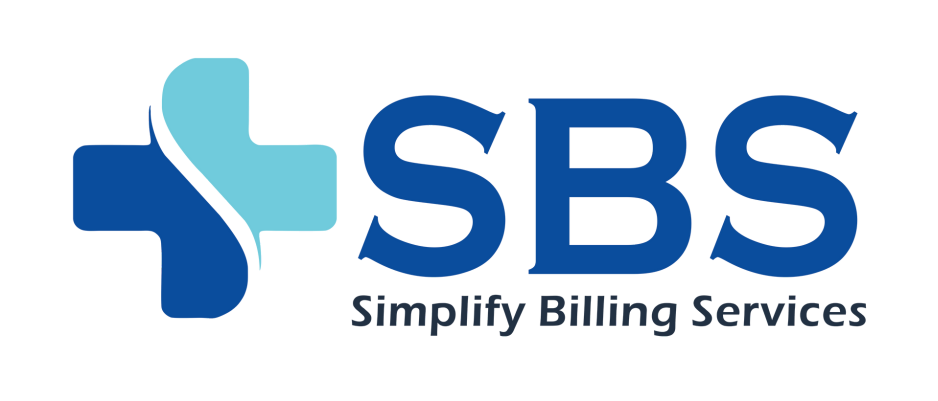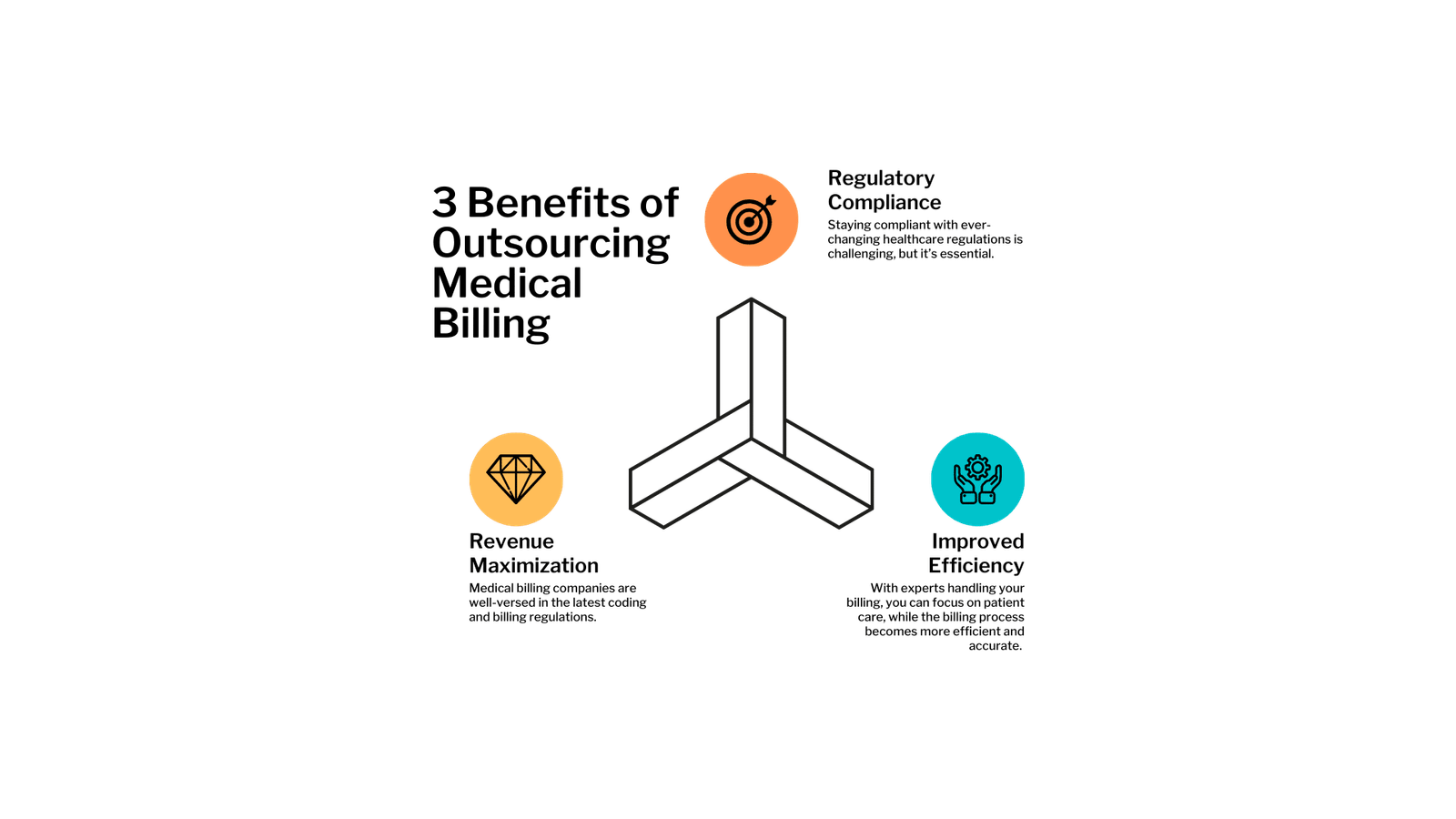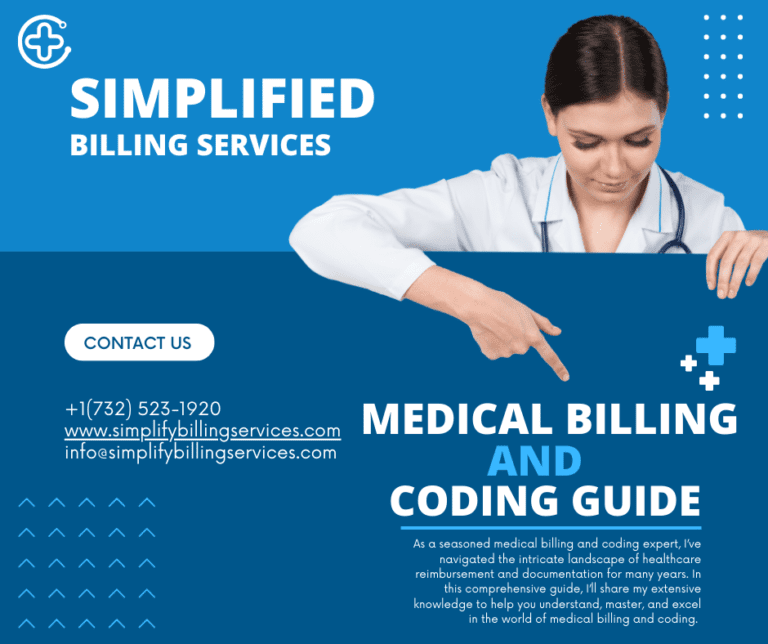In the ever-evolving landscape of healthcare, medical professionals find themselves facing an increasingly complex task: managing medical billing and revenue. Balancing this alongside their core responsibility of patient care can be an overwhelming challenge. The solution lies in outsourcing medical billing to specialized medical billing companies.
This comprehensive guide, written by Dr. Emily Rogers, a seasoned healthcare professional, delves into the experiences, challenges, and solutions associated with outsourcing medical billing.
In addition, we provide detailed questions to ask when considering outsourcing, as well as a wealth of information to help you make an informed decision.
In my extensive experience as a healthcare professional, my primary focus has always been providing the best patient care possible. However, I encountered numerous challenges when it came to managing medical billing in-house.
These challenges included time constraints, billing errors, and revenue leakage, which I will discuss in detail.
Challenges Faced by Medical Professionals
Time Constraints
Balancing patient appointments, administrative duties, and medical billing is a juggling act that can lead to inefficiencies. I often found myself struggling to allocate enough time to ensure billing accuracy and timeliness. It’s a challenge that many healthcare professionals can relate to.
Billing Errors
Billing errors can have a substantial impact on your revenue. Small mistakes can lead to claim denials, delayed payments, and sometimes even legal issues. Manually managing billing can be prone to errors, especially with the ever-changing healthcare regulations.
Revenue Leakage
Every medical practice faces revenue leakage, which means losing money that should rightfully be yours. I found it challenging to plug the revenue leakage gaps, leading to significant financial losses over time. This financial strain can be a burden on healthcare practices, affecting the quality of care provided.
The Decision to Outsource
After considerable contemplation, I made the decision to explore the option of outsourcing medical billing.
This choice was not made lightly, but it ultimately proved to be a pivotal turning point in my practice’s revenue management.
Selecting the Right Medical Billing Company
Choosing the right medical billing company is a critical decision. To make an informed choice, consider the following factors:
Experience and Expertise
Verify that the billing company has substantial experience in your specialty. It’s crucial to ensure they have a team of experts who understand the nuances of your field. A billing company experienced in your specific area of healthcare is more likely to optimize your revenue.
Technology and Software
Modern technology is essential in medical billing. Verify that the billing company employs cutting-edge billing software and technology to maximize efficiency and accuracy. This includes staying current with updates and improvements in billing software.
Data Security
Data security is paramount in healthcare. Patient information must be protected at all costs. Ask potential billing companies about their data security measures to ensure the protection of your patient’s sensitive information.
Benefits of Outsourcing Medical Billing
Outsourcing your medical billing can bring about several significant benefits:
Improved Efficiency
With experts handling your billing, you can focus on patient care, while the billing process becomes more efficient and accurate. Healthcare professionals should prioritize delivering quality care, and outsourcing can help you do just that.
Revenue Maximization
Medical billing companies are well-versed in the latest coding and billing regulations. Their expertise minimizes claim denials and ensures that you receive the maximum reimbursement possible for your services. In a time when healthcare costs are rising, optimizing revenue is crucial for the sustainability of your practice.
Regulatory Compliance
Staying compliant with ever-changing healthcare regulations is challenging, but it’s essential. Medical billing companies are equipped to keep you in adherence to these regulations, reducing your practice’s legal and financial risks.
Questions To Ask Service Providers When You Outsource Your Medical Billing
When you are considering outsourcing your medical billing, it’s vital to ask potential service providers critical questions to ensure they are the right fit for your practice. Here are key questions and the corresponding answers to look for:
How many clients do you have in my industry or share my specialty?
- You should choose a billing company with experience in your field, as this ensures they understand the specific coding and billing requirements unique to your practice.
What Practice Management Software is Best for this operation?
- The best practice management software can make a significant difference in the efficiency of your billing process. An experienced billing company should be able to recommend the software that suits your needs.
How Experienced are your Billers and What Certifications Do They Have?
- The expertise of the billers is crucial. Look for experienced billers with certifications such as Certified Professional Biller (CPB) or Certified Professional Coder (CPC).
What Reports Do You Provide Your Clients?
- You should receive regular reports on your practice’s financial performance, allowing you to monitor your revenue, understand the impact of outsourcing, and make informed decisions.
Do you Adhere Strictly to HIPAA Regulations?
- Compliance with the Health Insurance Portability and Accountability Act (HIPAA) is non-negotiable. The billing company should demonstrate a strict commitment to protecting patient data.
How Committed Are you Towards Adjusting your Processes to Accommodate Mine?
- Flexibility is key. A billing company should be willing to adapt its processes to align with your practice’s unique requirements.
Are There Periodic Audit Claims?
- Regular audit claims are essential for ensuring billing accuracy and compliance. The billing company should perform these audits to minimize errors.
How Often Do You Submit Patients’ claims?
- A prompt claims submission process is crucial for steady cash flow. Look for a billing company that submits claims promptly.
Who Handles Patients’ Questions and Concerns On Billing?
- It’s important to know who patients can contact regarding billing questions and concerns. An efficient and friendly point of contact is beneficial for maintaining patient satisfaction.
What’s the Charge for Your Services?
Understand the cost structure for their services, whether it’s a flat fee, a percentage of collections, or another arrangement. Ensure it aligns with your budget and offers a good return on investment.
Do I get Notified of Contract Issues?
Clear communication is essential. You should be informed of any issues or changes in your contract promptly.
How Much Transparency Can you Guarantee?
Transparency is crucial for building trust. Ensure that the billing company can provide detailed, transparent reporting on your practice’s financial performance.
How Much Workload Do Staff on Your Accounts Have?
Overloaded staff may lead to inefficiencies and errors. Ask about the workload of the staff assigned to your accounts.
What Associations are you Affiliated With?
Affiliation with professional associations demonstrates a commitment to industry standards and ethics. Look for affiliations with organizations like the American Medical Billing Association (AMBA) or the American Academy of Professional Coders (AAPC).
Who Do I Reach For Reference Sake?
Reaching out to references can provide valuable insights. A reputable billing company should have satisfied clients willing to vouch for their services.
Questions To Ask Your Organization When You Outsource Medical Billing
Before making the decision to outsource, your organization should address several key questions:
Is Outsourced Medical Billing and Coding Right for You?
Before making the transition, evaluate whether outsourcing medical billing and coding aligns with your practice’s needs, goals, and resources. Assess the benefits, costs, and potential risks associated with outsourcing.
Best Practices for a Successful Partnership
To ensure a fruitful partnership with your chosen service provider, consider implementing these best practices:
- Open Communication: Maintain transparent and open lines of communication with your billing company to address any concerns, updates, or changes in your practice. Regular meetings and updates should be part of the arrangement.
- Regular Audits: Periodic audits of your billing operations can help identify and rectify errors. Work with your billing company to ensure that these audits are carried out efficiently and effectively.
- Staff Training: While outsourcing can significantly improve efficiency, it’s essential that your staff understands the new processes and collaborates effectively with the billing company.
- Regular Reporting: Regular reporting on your practice’s financial performance is vital. Ensure that the billing company provides comprehensive and understandable reports, allowing you to make informed decisions.
- Performance Metrics: Define clear performance metrics and expectations with your billing company. This ensures that both parties understand what is expected and can work towards common goals.
- Data Security: Continuously monitor and ensure the security of patient data. Engage with the billing company to establish and maintain stringent data protection measures.
The Cost of Outsourcing Medical Billing and Coding
Understand the financial aspects of outsourcing.
While outsourcing may save you money in the long run due to reduced billing errors, increased efficiency, and higher revenues, it’s essential to know the cost implications upfront.
Billing companies typically charge a percentage of the collections or offer a flat fee. Consider these costs in the context of the benefits and efficiencies outsourcing brings to your practice.
Conclusion
Outsourcing medical billing and coding has been a transformative experience for my medical practice. It allowed me to focus on what I do best, patient care, while experts managed the intricate world of medical billing. Selecting the right partner and maintaining clear communication was key to a successful transition.
If you’re facing challenges in medical billing, consider outsourcing as a viable solution that can improve your practice’s efficiency and revenue while ensuring regulatory compliance. By asking the right questions, understanding the benefits, and evaluating your practice’s needs, you can make an informed decision that positively impacts your healthcare practice and the care you provide to your patients.







